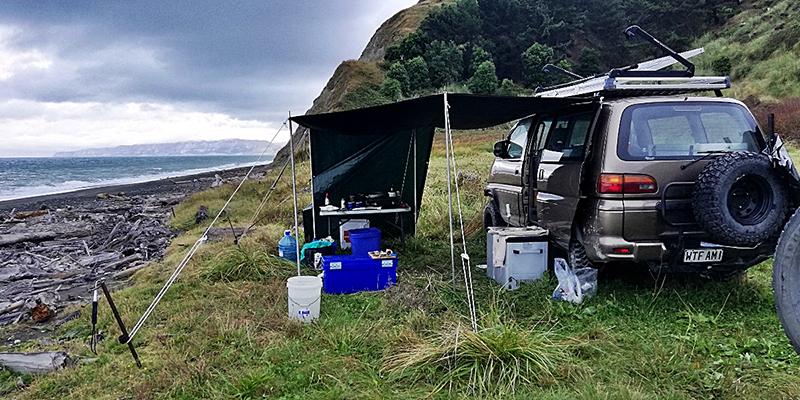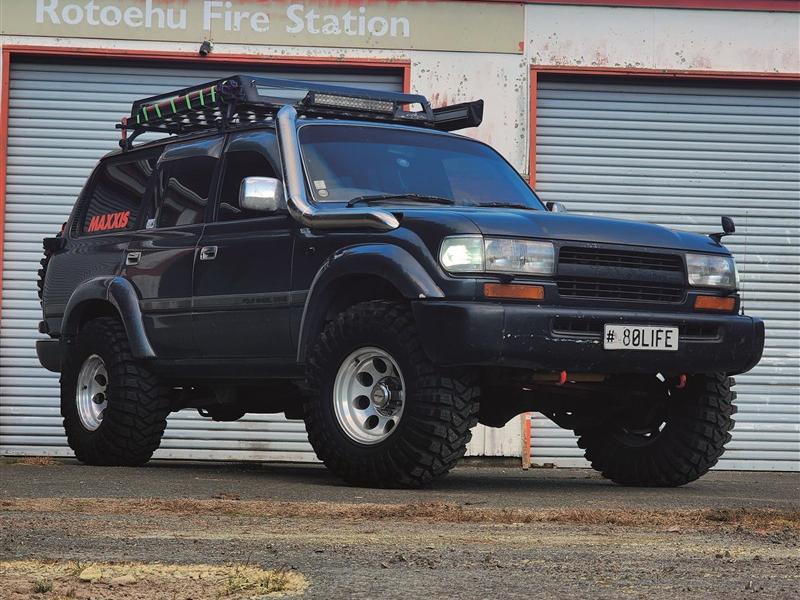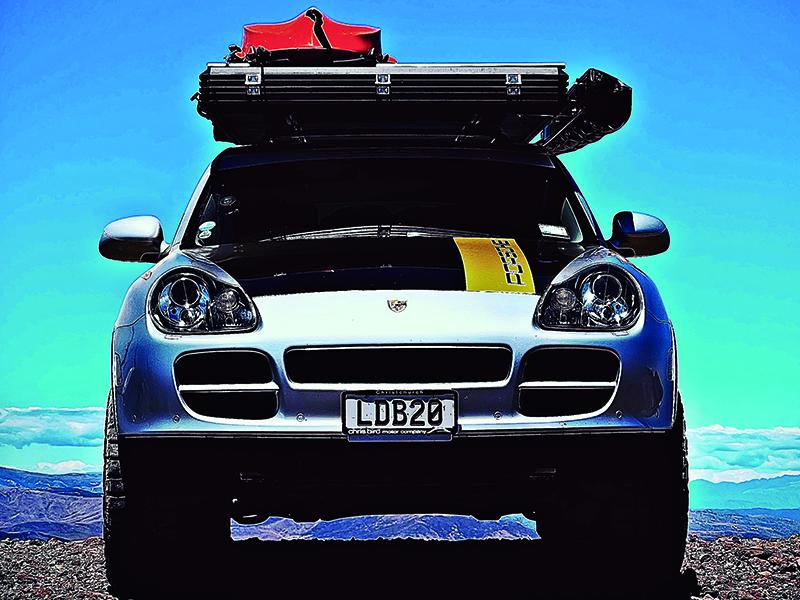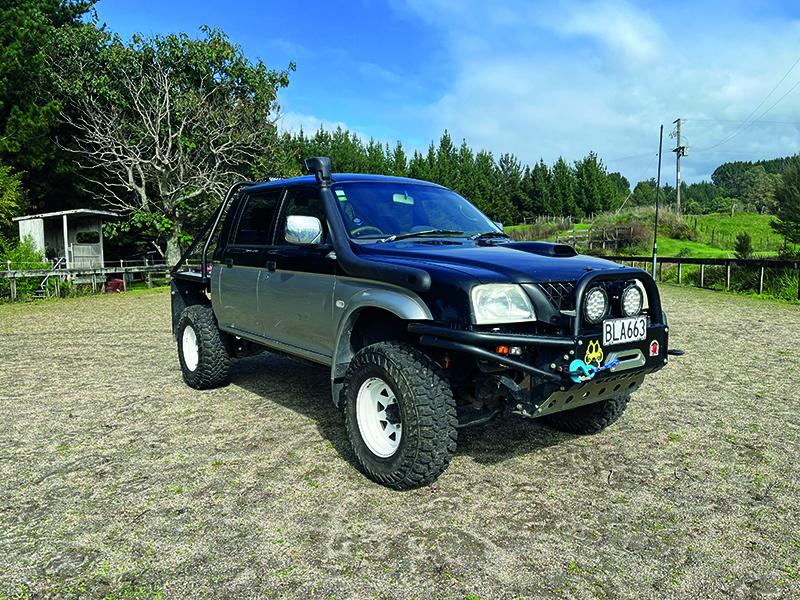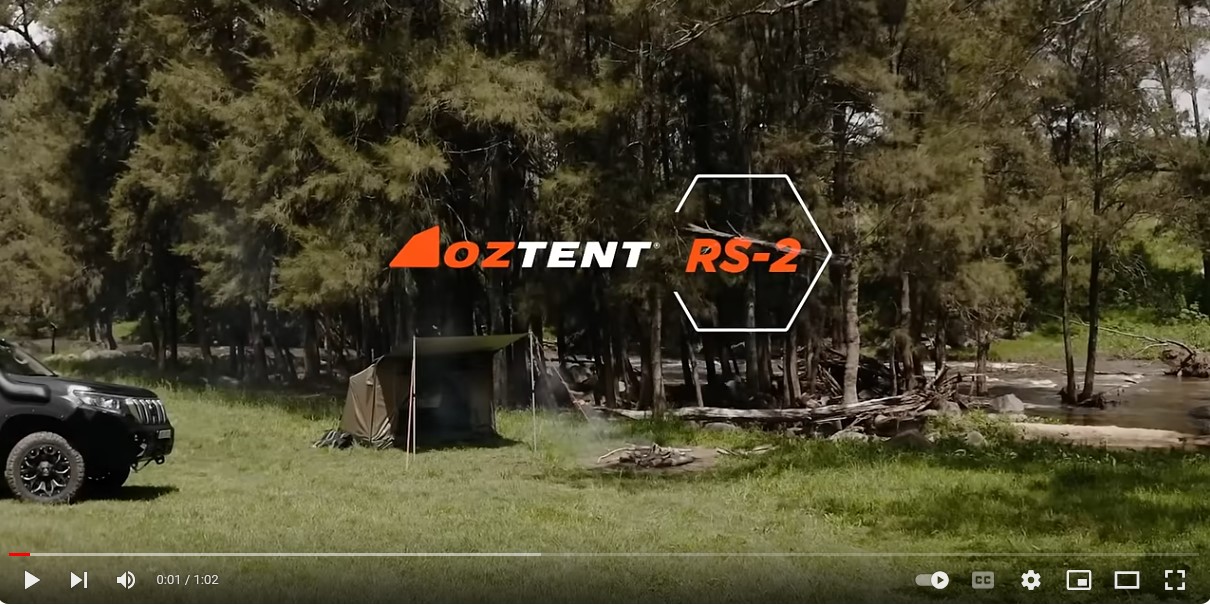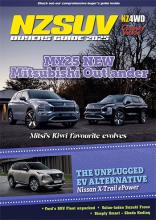Building a fit-for-purpose V8 4WD van
Hawke’s Bay’s Chris Morris is a hands-on, DIY type of bloke. Loves his fishing, and loves the Kiwi outdoor lifestyle. He has been a “Vanthusiast” forever, and has been progressively modifying his diesel-powered Mitsubishi Delica van for equally as long. Eventually, the asthmatic diesel donk was not doing what he wanted and action was called for.
“I had been tossing around the idea of repowering my Delica with something more reliable and powerful. A few guys had used the 1UZ-FE Toyota V8 with success as it bolts straight on to the Mitsi’s transmission.”
The four-speed auto in the Delica S1 van is the Aisin Warner 4 series. Toyota’s Soarer/Crown’s features the 1UZ-FE V8 and uses the same transmission.
“So all you have to do is swap the Mitsi’s bell-housing, converter, input shaft and pump for the V8’s one and everything bolts up apparently.”
Of course, it’s never that simple.
There are space issues bringing a V8 into the Delica engine compartment.
“It’s a squeeze getting the V8 in there width-wise and requires cutting part of the front panel out of the van to get enough room to slide the lump in. Also, once you have done the conversion, the vehicle will need to be re-certified (engineering certificate) in order to be legal for road use.”
After that, the next step is wire in the Toyota’s ECU into the Mitsi’s system. Easy? No.
“As fate would have it, I was saved the pain of doing all of this when a van came up for sale with everything already done. I bought it.”
The new van has the later model VVT-i version of the 1uz motor fitted. It’s also fully certified and running so most of the hard/expensive work has been done. The conversion, while being functional, was “a bit scruffy in my eyes and I will be tidying things up as I go.”
Tidying the van, a problem occurred: it stopped and would no longer start.
Suspecting it had much to do with the somewhat hacked up standard ECU and immobiliser-defeat box that the previous owner had fitted, Chris took the van to a local shop “to ditch all that garbage on top of the engine and fit a Link ECU”.
Expensive? Yes.”
“But I want this thing to be reliable and I just don’t trust hacked and bypassed electronics.”
Chris said the original wiring job was “a bloody mess not to mention a fire hazard and death trap.”
He also moved the electronic fuel pump from the engine bay down to beside the fuel tank. The pumps are designed to be gravity fed and push fuel up to the engine. He also ditched the large diesel fuel filter and priming pump that had been re-purposed for petrol in favour of a simple steel inline filter.
There was still plenty of work to do around the engine bay. The space vacated by the fuel filter and pump, behind the battery, was used to locate the wiring loom patch blocks and fuses inside a suitable box.
Next: sorting out the radiator, thermo fans and air intake and fitting an air-temperature sensor, then an O2 sensor in the exhaust. One thing that did show up on the dyno (and to a certain extent on a recent trip to Taupo) is the fact that the engine runs a little hot under high load.
Discussing this with his tuner (who also runs the same 1UZvvti engine in a competition truck), they decided it was an airflow issue. The van now has a larger than standard radiator and two 12inch SPAL fans sucking air through it but the problem appears to be that the air is obstructed from actually getting into the radiator due to the bullbar/winch array. A ‘pusher’ fan on a separate switch has helped.
Once that was all done the van was road tuned to get the best out of the ECU mapping.
Then two years ago, Chris took a further step toward sufficiency with a solar set-up to run his Vantage 82 litre fridge/freezer. The specs suggest that a 200w panel and a 20amp MPPT controller coupled with a 150ah deep cycle battery should do.
“So now I have a 260w panel mounted on the roof tray. It’s hinged on one side so that I can tilt it, or just lift it up to get underneath it.”
This panel is feeding a Tracer AN Series 20amp MPPT Controller which feeds a pair of 85ah deep cycle batteries wired in parallel.
“The set-up seems to be holding its own against the 6amp consumption of the fridge-freezer at 14.1v. I’ve yet to try it on a cloudy day.”
Stopping power had to be sorted too, so the van received a shiny new set of ventilated disc rotors and pads. That session was also an opportunity to fit manual freewheeling hubs to the van, reducing binding and mechanical drag. Next came attention to the air path into the engine.
“I had a stainless steel intake snorkel and alloy airbox made. The air intake temperature when the filter was exposed under the bonnet was upwards of 50 degrees Celsius. Now with the snorkel pulling cold air from outside the engine bay the intake air temperature has dropped by at least 25 degrees. On average the air intake temps are now just above ambient.
This has made a good improvement in fuel consumption of about two litres less per 100km.
In the cabin, aftermarket SAAS gauges track the transmission temperature, water temperature and oil pressure.
Chris says fuel costs are forcing him to prioritise his use of the van
“I don’t use the van a lot these days, petrol prices being so high, so when it does get used it’s usually for a decent outing.”
Media-savvy, Chris has uploaded several videos of the Delica to Youtube.
Watch the build narrated here:
https://www.youtube.com/watch?v=gPJc-TvWBG0
Watch a road-based test drive here:
https://youtu.be/sL5Z_0OQN-E
Or take a look at his Delica blog site here:
http://www.delicavan.com/v8-delica-build

